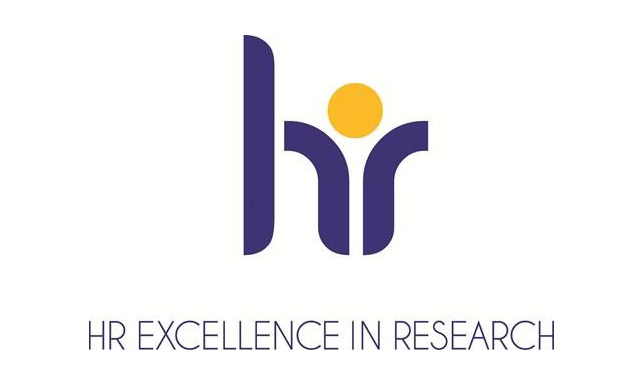MSCA–PF
Maria Skłodowska-Curie Actions (MSCA) Postdoctoral Fellows

The call for MSCA Postdoctoral Fellowships 2025 is now closed
Are you eligible to apply for an MSCA-PF?
Are you eligible to apply for an MSCA-PF?
There are two types of MSCA Postdoctoral Fellowships: European and Global. Regardless of the scheme you apply for, all candidates must be in possession of a doctoral degree by the call deadline. Applicants who have successfully defended their doctoral thesis but have not yet formally been awarded the degree will also be considered postdoctoral researchers and are eligible to apply.
In addition, for both schemes, applicants must have a maximum of eight years of full-time equivalent research experience, measured from the date of the PhD award to the call deadline. Years spent outside research and career breaks (e.g. parental leave) will not count towards this total. For nationals or long-term residents of EU Member States or Horizon Europe Associated Countries who wish to reintegrate into the EU Member States or Horizon Europe Associated Countries, research experience gained in third countries will not be counted toward the eight-year maximum.
Finally, all applicants must comply with the following mobility rule: They must not have resided or carried out their main activity (work, studies, etc.) in Norway (for European Postdoctoral Fellowships), or in the host organization for the outgoing phase (for Global Postdoctoral Fellowships), for more than 12 months in the 36 months immediately before the call deadline.
To summarise:
a. The European Postdoctoral Fellowships
These are open to excellent researchers of any nationality. They last for up to 24 months, or 30 months if a 6-month extension is requested to pursue a secondment in a non-academic organisation located in an EU Member State or Horizon Europe Associated Country.
To be eligible to apply with NTNU as the host institution, the applicant:
- Must have successfully defended their doctoral degree or hold a PhD by the call deadline,
- Must have less than eight years of full-time research experience post-PhD,
- Must not have resided in Norway for more than 12 months in the 36 months preceding the call deadline.
b. The Global Postdoctoral Fellowships
These are open to European nationals or long-term residents of EU Member States or Horizon Europe Associated Countries (i.e. a period of legal and continuous residence of at least five consecutive years). The fellowships last for up to 36 months and consist of:
- An outgoing phase of up to 24 months in a non-associated third country (e.g. New Zealand, USA), followed by
- A mandatory 12-month return phase to NTNU.
These fellowships may also be extended by an additional 6-month secondment in a non-academic sector organization.
To be eligible to apply with NTNU as the host institution, the applicant:
- Must have successfully defended their doctoral thesis or hold a PhD by the call deadline,
- Must have less than eight years of full-time research experience post-PhD,
- Must not have resided in the third country where the outgoing phase will place for more than 12 months in the 36 months preceding the call deadline.
For full details on eligibility criteria, please consult the MSCA Work Programme 2023–2025 and the MSCA PF call text.
EU advisers will assist you with the application
EU advisers will assist you with the application
Candidates and their supervisors are strongly encouraged to involve the EU adviser at their faculty in the application prosess. EU advisers can assist with application forms, annotated templates, proposal reviews, and budgets. Please contact your NTNU EU adviser.
Working as an MSCA fellow at NTNU
Working as an MSCA fellow at NTNU
NTNU is a large, ambitious, multidisciplinary, and inclusive university with an international focus. Approximately 400 PhD degrees are awarded each year, and we are Norway’s largest university, with around 44,700 students.
Participation in EU funding programmes, including Horizon Europe, is a high priority for NTNU. Over the years, we have developed a professional administrative support team to ensure the submission of high-quality proposals and the smooth implementation of our EU projects.
NTNU offers attractive working conditions for MSCA Postdoctoral Fellows, including:
- Support from the International Researcher Support Office (NIRS), assisting with the practicalities of relocating to Norway (e.g. finding accommodation, immigration and tax advice, language training, social events, and support for accompanying family members).
- Access to state-of-the-art facilities and a stimulating, research-driven environment.
- Excellent training and development opportunities for early career researchers.
NTNU is strongly committed to the European Charter for Researchers and the Code of Conduct for the Recruitment of Researchers (C&C). Our HR strategy is also aligned with the principles outlined in the European Commission recommendation.
Read more about NTNU and our research and education activities.
What are MSCA Postdoctoral Fellowships?
The goal of the MSCA Postdoctoral Fellowships is to support researchers’ careers and foster excellence in research. The Postdoctoral Fellowships are prestigious for both the postdoctoral researchers and their supervisors. MSCA Postdoctoral Fellowships are intended for researchers who hold a PhD and wish to acquire new skills through advanced training, international, interdisciplinary and inter-sectoral mobility.
They target researchers from all disciplinary areas who:
- Have successfully defended their doctoral thesis or hold a PhD at the time of the call deadline,
- Have a maximum of eight years’ experience in research, from the date of the award of their PhD degree (eligibility extensions apply due to career breaks),
- Meet the mobility rules (as defined in the call's eligibility criteria).
The fellowships are open to excellent researchers of any nationality, including those wishing to reintegrate in Europe, researchers who are displaced by conflict, and those with high potential aiming to restart a research career.
Our experience shows that successful proposals in the MSCA–PF programme result from close collaboration between candidates and their supervisors. Proposals should be developed by the candidates in close cooperation with their NTNU supervisors, who should be actively involved from the start of the application process and throughout the project.
There are two types of MSCA Postdoctoral Fellowships: European and Global. Please see the tab «Are you eligible to apply?» for more information.
All information on the MSCA-PF call is available at the MSCA website.
NTNU online seminar for applicants
29 and 30 April 2025
MSCA–PF seminar programme 2025
Every spring, NTNU hosts a webinar for applicants to the MSCA Postdoctoral Fellowships call and their supervisors. The seminar aims to provide participants with the essential information needed to prepare a competitive proposal. It covers key aspects of the scheme and the proposal templates, including top tips and common pitfalls. The event is held online and is free of charge.
We strongly encourage you to make an agreement with an NTNU supervisor before signing up for the seminar, in order to get the most out of the training. If you would like to join, but do not yet have an agreement with an NTNU supervisor, you may contact the EU advisor at the relevant faculty. They will work closely with you and your supervisor in the weeks leading up to the deadline.
Before registering for the online seminar, participants are asked to read the MSCA–PF call documents and check their eligibility to apply.
MSCA Postdoctoral Fellowships are highly competitive, but the rewards are significant – starting with the impact they can have on the research careers of successful applicants. We look forward to welcoming you to our MSCA seminar!
Key documents for postdoctoral fellowship candidates
- MSCA Postdoctoral Fellowships
- Latest news about MSCA
- HR for researchers at NTNU – Working conditions for researchers at NTNU
- Mobility Services at NTNU – Support for international staff working at NTNU
- Euraxess – The European portal for researchers in motion
Stories from MSCA Postdoctoral Fellows at NTNU
Get to know the people behind the research. MSCA Postdoctoral Fellows at NTNU share their experiences and insights.





